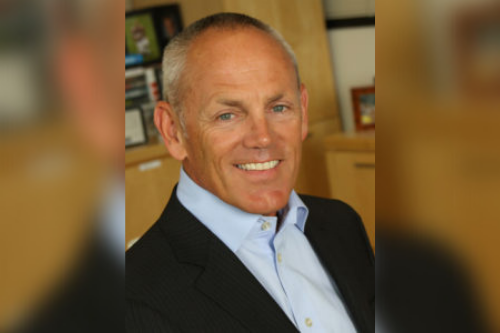Bill Dallas likens philosophy to applying Leave it to Beaver values in a world that looks like Keeping up with the Kardashians

Bill Dallas believes that the underlying idea of a home that drives agency lending is outdated. Dallas (pictured), president of Finance of America Mortgage, used two TV shows to demonstrate the gap that’s grown between how the agencies think of American households and how they actually are.
The idea of home, Dallas said, pulls from Leave it to Beaver, an iconic 50s show about a nuclear family in a suburban cul de sac with a father who worked one job his whole career and a stay-at-home mother. Reality, he explained, is more like Keeping up with the Kardashians, a show about a huge extended family, each member of which is carrying a breadth of engagements and side hustles.
While most American homebuyers aren’t as wealthy or famous (or unhinged) as many of the characters on Keeping up, they are more likely to have a range of different jobs and side hustles than they were when agency lending guidelines were originally written. They are very likely to live in a dual-income household and could very well be leveraging a portion of their property to generate income. The fact of 21st century American life is that home, work and family are far more complex ideas than they were in the 50s. Dallas believes that it’s time for agency lending guidelines to reflect that complexity.
“We need to modernize the guidelines,” Dallas said. “One of the best leaders at Fannie Mae used to say that he thinks we should customize the commodity so our guidelines speak to individual borrower sects and contemplate their income… Using a certain portion of income for rent or for homeownership is settled over time. The challenge is that when you start making labels of people and start drawing bright lines of income, you start creating problems.”
Read more: Annual US home price growth reaches pre-pandemic high
Dallas’s view is that lenders need to only calculate based on income. He argues that DTI has never been correlated with default rate and that base pay from a primary job doesn’t play the outsized role in a personal financial picture that it once did. Bonuses, overtime pay and variable income from second jobs or small business ventures make up a significant portion of someone’s income, yet it’s very hard to incorporate that extra income into a conventional loan application.
While Dallas thinks the agency guidelines need to reflect an idea of homeownership that goes beyond Leave it to Beaver, he accepts that the FHFA is currently run with a philosophy built around a conventional concept of homeownership. The recent 7% lending limits on investment properties and second homes, he said, reflect that philosophy somewhat. Dallas, therefore, believes that private capital should be taking a greater leadership role in mortgage lending. He sees the government’s role as ensuring equitable access to homeownership through loan programs like the FHA and VA. Loans for typically qualifying Americans should, in his opinion, flow from private capital and reflect the greater flexibility of a private lender.
Dallas added, crucially, that he is not advocating for a return to pre-2008 lending standards. He doesn’t want to see the kind of reckless and predatory lending that contributed to the financial crisis. He does want to see Fannie and Freddie privatized again so they can more freely update their lending guidelines and build a private loan securitization method that reflects modern income arrangements. He would like any effort to be gradual and come with enough support to set the agencies up for success, but Dallas sees this as a key step to updating lending guidelines that are constraining Americans.
“We’re trying to apply old underwriting guidelines to first time homebuyers when they don’t have two years of stable employment history,” Dallas said. “If you’re a broker and you want to take advantage of the future, your options are to go through jumbo, which is very restrictive, or non-QM. In this environment you’re going to have to work with [private] lenders who are forging the frontier, recognizing the current picture of income and assets.”



